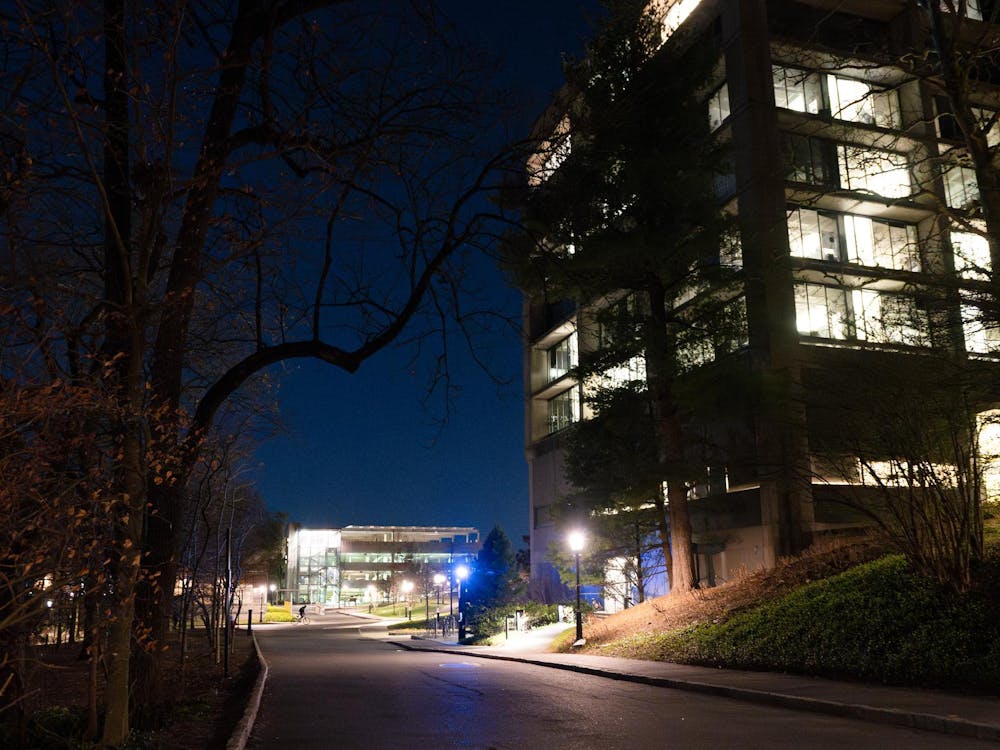We are told from the beginning that finance companies and corporations actively seek out Princeton undergraduates. It is considered more of a sure thing, and the numbers seem to agree. According to Catherine Rampell of The New York Times, “Of Princeton seniors who had full-time jobs lined up after graduation, 35.9 percent went into finance in 2010.” The number going into finance was as high as 46 percent in 2006.
Rampell goes on to write, “The steady flow of Princeton students to Wall Street has caused the University some P.R. (and legal) problems in the past,” and cites the Robertson lawsuit against Princeton, in which the Robertson family was upset that their endowment was being misused to send a stream of undergraduates into finance. Many, as Tad LaFountain pointed out in a recent article in the ‘Prince,’ view “employment in the financial sector … as a pact with the devil.” The same stigma carries outside of the financial industry and to employment in many big corporations and institutions, such as in the pharmaceutical or food industries, in healthcare or even in parts of government. As such, Princeton has come under some scrutiny for sending so many graduates to Wall Street and the like — the ostensibly big bad companies of stereotypically little moral refuge.
LaFountain goes on to give a good analysis of the state of the financial industry and what decisions got it to this point of crisis, and then encourages seniors to take these jobs and to be the upstanding people of moral virtue that make a difference for the future of these companies. He goes on to say, “It can’t happen overnight, but without this sort of shift in the mindset of young people entering the field, [change] will never happen.” And I agree. New mindsets and renewed commitment to ethical thought and moral values are necessary across industries.
The question becomes, how do we get there? What is it that would make today’s Princeton graduates of any more integrity than those who have been going into the same industries, the same companies, for the last few decades? The one general education requirement in ‘Ethical Thought and Moral Values’ hardly does the job. That is, these are things that cannot be taught, beyond a certain point, by a class. (It is interesting to note that five of the six engineering departments do not even require an EM distribution requirement from their students.)
Instead, it is on us to be these ethical people. At this point, however, most of us would say we are and will remain ethical. We cannot foresee anything that would change that. But our predecessors thought the same thought. And they generally were not bad people, certainly not intent on doing wrong, any more than we are.
It is a curious shift, going from here to the working world. Here, we can be and often are fairly vocal about our opinions concerning the University. We speak out against the things we do not like. We are a part of Princeton but still separate. We do not need to align with its policies; we have no binding affiliation with its official actions. We do not have to defend its actions. We are simply students. After graduation, we will be alumni, still removed from official association, outside, retaining our right to pass criticism on the University’s actions. But working for a company or a corporation is an entirely different story. There, you are by nature affiliated with the company and with its actions and history. The way we regard Princeton (or any other institution we may be involved in thus far) is not the way we will behave toward our employing company. We cannot envision the ethical gray areas, ourselves within them, because we have never truly been in that position before, in the context of a company.
So, again, what makes us different, if it is obviously not the material we are exposed to or the resolve we have? Some might say the economic crash, the Occupy Wall Street movement (whether we agree with its platforms or not, it undeniably created dialogue) or health care reform — these are the things that define our generation, that give us the awareness of the way things were, that will enable us to make changes or be different. I do think that they created a jolt, an immediate impetus towards larger change. But it is April now, the winter has passed, and in many ways the constant general interest is naturally waning. Will we be any different because of it? Will we be any different?
Kinnari Shah is a sophomore from Washington, N.J. She can be reached at kmshah@princeton.edu.







